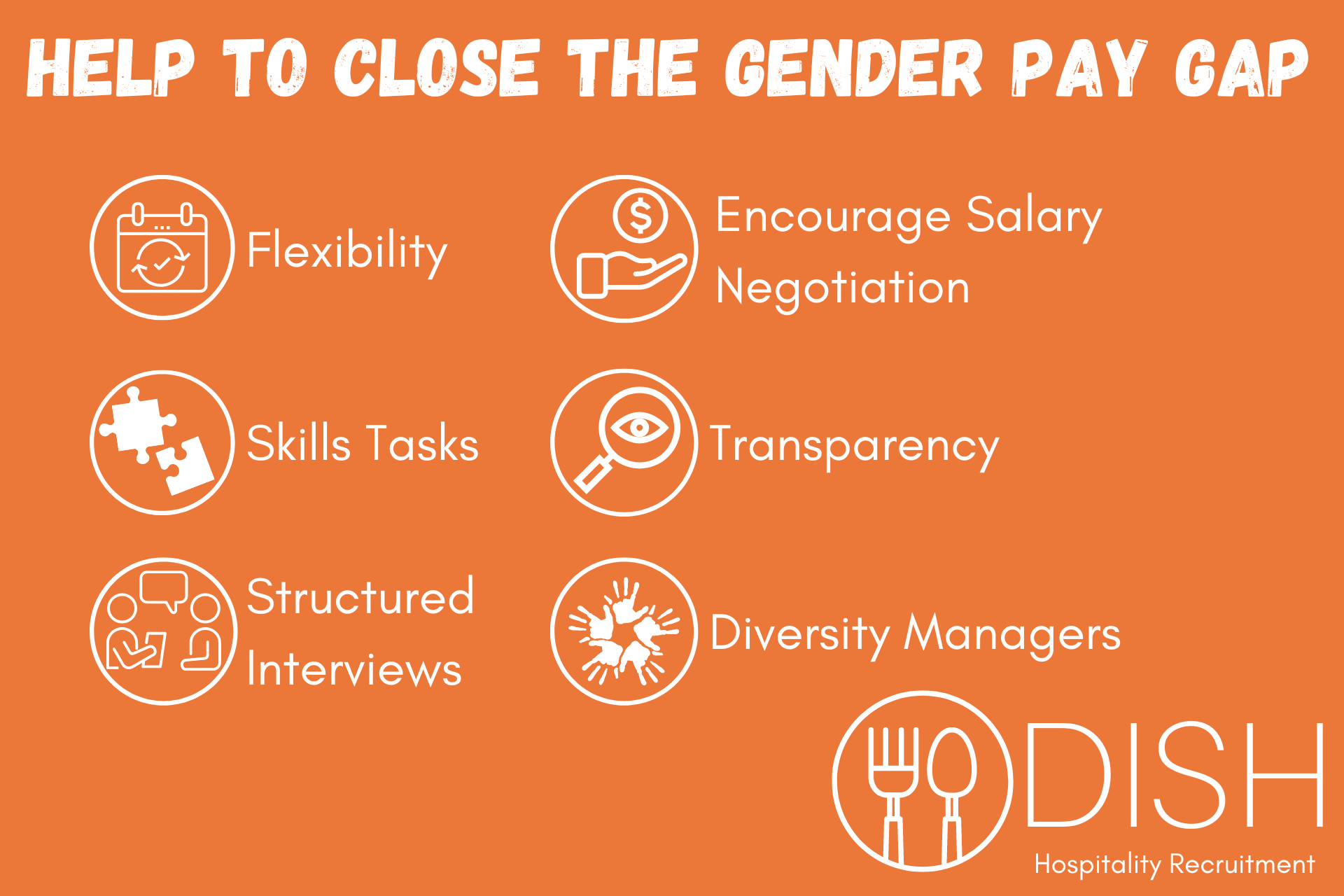
10 May Help to Close the Gender Pay Gap
The gender pay gap is the difference between the average earnings of men and women across a workforce.
52 years after the Equal Pay Act made it illegal to pay men and women differently for the same work in the UK, on average, women still earn 10% less than men. This may be due to a number of reasons, including occupational segregation, lack of flexible working and discrimination in pay.
Occupational segregation is the stereotyping of women’s capabilities and skills resulting in women often ending up in occupations associated with low pay such as cleaning, catering, admin, care, and retail. Women are less likely to be found in management and senior positions.
A lack of flexible working in the workplace is another barrier to women gaining higher-paid full-time employment, as women are more likely to find themselves with caring responsibilities for children, sick, disabled or elderly relatives.
Despite the 1970 Equal Pay Act, discrimination in pay still exists; mostly unintentionally. For example, different job and grade titles may be used for virtually the same jobs; male-dominated jobs may have disproportionate access to bonus earnings; bias in analytical job evaluation schemes may grade women-dominated jobs lower.
The gender pay gap not only reflects continued inequality for women but also contributes to women’s higher levels of poverty, children’s poverty and women’s pensioner poverty. The gender pay gap also impacts household earnings and men’s earnings when they work in occupations with high levels of women workers. Since 2017, therefore, the UK government has instituted compulsory annual reporting of payroll data for employers with 250 employees or more.
So what can you do to close the gender pay gap in your organisations?
- Offer and clearly advertise flexibility in your job vacancies
Since women are more likely to require flexibility, offering full-time roles with flexibility makes these higher-paid roles more accessible to women.
2. Use skill-based assessment tasks in recruitment
Rather than relying only on interviews, where unconscious bias can creep in, ask candidates to perform tasks related to the role they are applying for. Use their performance on those tasks to assess their suitability for the role. Standardise the tasks and how they are scored to ensure fairness across candidates.
3. Use structured interviews for recruitment and promotions
Structured and unstructured interviews both have pros and cons, but unstructured interviews are more likely to allow unfair bias to creep in and influence decisions.
Use structured interviews that:
- Ask exactly the same questions of all candidates in a predetermined order and format
- Grade the responses using pre-specified, standardised criteria. This makes the responses comparable and reduces the impact of unconscious bias
4. Encourage salary negotiation by showing salary ranges
Women are less likely to negotiate their pay. Employers should clearly communicate the salary range on offer for a role to encourage women to negotiate their salary. This helps the applicant know what they can reasonably expect. If women negotiate their salaries more, they will end up with salaries that more closely match the salaries of men.
5. Introduce transparency to promotion, pay and reward processes
Transparency means being open about processes, policies and criteria for decision-making. This means employees are clear about what is involved, and that managers understand that their decisions need to be objective and evidence-based because those decisions can be reviewed by others. Introducing transparency to promotion, pay and reward processes can reduce pay inequalities.
6. Appoint diversity managers
Diversity managers monitor recruitment, promotions and diversity within the organisation. They can reduce biased decisions in recruitment and promotion because people who make decisions know that their decision may be reviewed. This accountability can improve the representation of women in your organisation.
Diversity managers should:
- Have a senior/executive role within the organisation
- Have visibility of internal data
- Be in the position to ask for more information on why decisions were made
- Be empowered to develop and implement diversity strategies and policies
Article sources: https://gender-pay-gap.service.gov.uk/actions-to-close-the-gap/effective-actions

